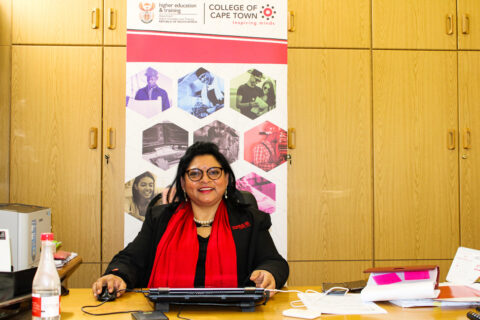Sunday Times Skills
What Does the Ocean Economy Need?
One of the biggest challenges facing governments of all countries, rich and poor, is how to coordinate the efforts of the public and private sector in order to achieve strategic economic or social goals in as short a time as possible. In South Africa, the key framework is Operation Phakisa, which has featured prominently since it was adopted in 2014 as a way of rapidly growing an “ocean economy”, which at present is either small or non-existent.
It’s clear there is much opportunity for growth and development in South Africa’s ocean economy: the country has jurisdiction over 1.5 million square kilometres, while extended continental shelf claims could double the size of the country’s ocean geography.
Today, South Africa has more ocean space than it has land. We have 3 900km of coastline, and four coastal provinces with their own socio-economic contexts and development goals, yet, for various historical or cultural reasons, barely any fishing industry to speak of, and, until last year, not a single transport ship flew the South African flag.
Phakisa’s plans to change this are ambitious (see page 35), and have got off to a reasonably good start. President Zuma announced in April that Phakisa programmes have already unlocked R17-billion in investment into the ocean economy, and more than 4 500 jobs have been created.
But will the best-laid plans and honourable intentions of Operation Phakisa be able to mature if there are not sufficient skilled workers to fill the thousands of jobs that the initiative sets out to create?
It’s no surprise to find that precisely the kinds of technical skills required are those that figure highly on the official list of “National Scarce Skills”. Making things harder is the fact that the reason the ocean economy is attractive is that there’s little existing industry there to learn from. But not all.
One of the major issues that hampers growth is that of poaching or illegal, unreported and unregulated (IUU) fishing. Revenue and jobs which should be created here are ending up in other countries because the ocean is a hard place to police.
“Many businesses in South Africa act in the global market and have global experience,” says Johan Rattvall, marketing executive manager
at Saab Grintek Defence, a firm which supplies with the South African Navy (SAN). “South Africa is not unique in the fight against poaching and IUU fishing – this is a global problem, and there are different solutions to counter it.
The industry can, in dialogue with government, tailor solutions to suit South African conditions, using its world-class knowledge and capabilities.”
As one of the most prominent roleplayers in Operation Phakisa, Transnet Port Terminals (TPT) is the operating division of Transnet that manages terminal facilities at South Africa’s ports, focusing on the automotive sector, containers, bulk and break bulk. It employs more than 9 000 people across its operating terminals, including permanent and contract workers.
According to TPT’s general manager for human resources, Dumisani Khuzwayo, the company’s human resources strategy has been finetuned to create and develop core skills, creating  capacity ahead of demand. It also prioritises developing leadership skills at all levels of management.
capacity ahead of demand. It also prioritises developing leadership skills at all levels of management.
Khuzwayo adds that TPT’s training initiatives are not just about satisfying internal demand; participants will be sufficiently equipped to seek opportunities outside the organisation in the event that they are unable to secure employment internally. He says recruitment is done in a manner to satisfy South Africa’s transformation agenda, with particular bias applied towards women and people living with disabilities.
The company also has supplier development programmes across its network of terminals. Where required skills and equipment are specialised and sophisticated, TPT issues contracts that compel multinational manufacturers to fulfil their contractual obligations locally, transferring skills to emerging SMMEs and other suppliers.
Government has also recognised the skills shortages that could sink its efforts at growing South Africa’s ocean economy, and in April it announced the establishment of the R295-million South African International Maritime Institute, based at the Nelson Mandela Metropolitan University in Port Elizabeth.
Two new high schools that specialise in maritime studies have also been opened: the Ngwenyathi Senior Secondary School in Nxarhuni, near Mdantsane, and the George Randell Senior Secondary School, near the East London airport.
Classes started with an intake of Grade 10 pupils in January this year, and prior to the start of term teachers were sent for training at institutions in Belgium and Cape Town.
Further Phakisas have begun in the health and education sectors, but all eyes are on the ocean economy now, as it enters the critical implementation stages, to see if momentum can be carried forward to achieve its goals.





 Sign-up and receive the Business Media MAGS newsletter OR SA Mining newsletter straight to your inbox.
Sign-up and receive the Business Media MAGS newsletter OR SA Mining newsletter straight to your inbox.